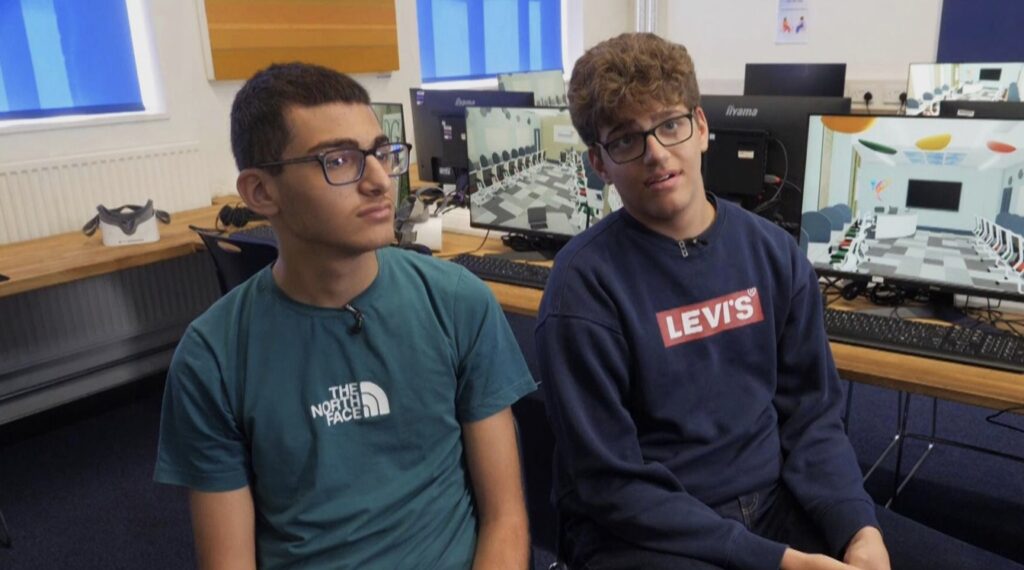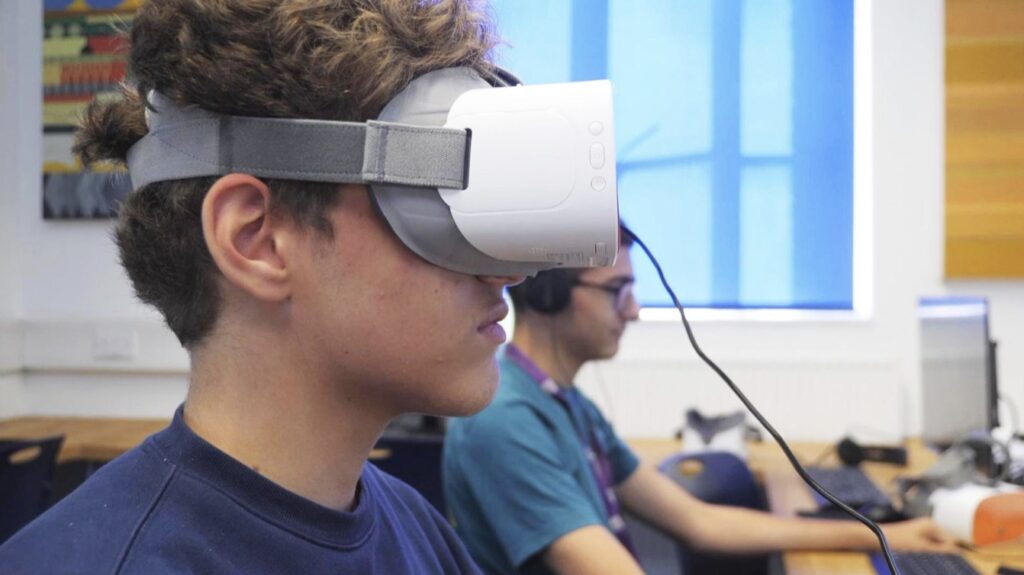How Artificial Intelligence is Revolutionizing GCSE Education—and Sparking Debate
The educational landscape in the UK is undergoing a radical transformation with the introduction of the nation’s first ‘teacherless’ classroom. Here’s a glimpse into how AI is reshaping GCSE education and the controversies surrounding it:
- AI-Driven Personalized Learning: At David Game College, a private school in London, AI platforms and VR headsets will replace traditional human teachers for a new GCSE class. The technology adapts to each student’s strengths and weaknesses, providing highly personalized lesson plans designed to optimize learning outcomes.
- Human Touch Still Needed: Despite the cutting-edge technology, three ‘learning coaches’ will oversee the students, providing support and teaching subjects that AI struggles with, such as art. This hybrid approach aims to balance technological precision with essential human interaction.
- Controversy and Criticism: While AI advocates tout its ability to deliver precise and individualized education, critics argue that replacing human teachers with machines could lead to a soulless learning environment and diminish crucial interpersonal skills.
In an innovative move that could redefine education, David Game College in London is set to unveil the UK’s first ‘teacherless’ classroom, where artificial intelligence (AI) will take center stage in teaching GCSE students. Starting this September, a cohort of 20 students will experience a new model of learning, driven by AI and virtual reality (VR) technology.

This pioneering approach utilizes advanced AI platforms to tailor lesson plans based on each student’s individual learning needs. By analyzing data on student performance, the AI adjusts the curriculum to focus on areas where students require additional support, ensuring a personalized educational experience. Stronger subjects are reserved for later in the term for revision, while weaker areas are addressed promptly, creating a dynamic and responsive learning environment.
John Dalton, co-principal of David Game College, emphasizes the precision and continuous evaluation AI can offer. “There are many excellent teachers out there, but we’re all fallible. AI’s level of accuracy and its ability to pinpoint why a child might be struggling can be incredibly beneficial,” he states.

The students, who will each pay around £27,000 a year, will not be entirely isolated from human interaction. Three ‘learning coaches’ will be present to monitor behavior, provide assistance, and teach subjects that AI currently struggles with, such as art and sex education. This blend of AI and human support aims to provide a comprehensive educational experience.
Despite the potential benefits, the initiative has sparked considerable debate. Critics, like Chris McGovern of the Campaign for Real Education, argue that relying heavily on AI could lead to a dehumanized education system. “AI is a machine, and it’s inert. You’re taking away the interpersonal skills and the essential interaction between pupils and teachers,” he asserts.
The broader use of AI in UK classrooms is not new; the technology has already been deployed to enhance lesson plans and assist with homework marking. The UK government has even created a repository of anonymized lesson plans to train various educational AI models. Stephen Morgan, the minister for early education, sees AI as a valuable tool for supporting teachers and easing classroom management.
As David Game College embarks on this groundbreaking venture, the results will likely set a precedent for the future of education. While AI’s potential to personalize learning and improve educational outcomes is exciting, the debate over its role in replacing human teachers highlights the ongoing need to balance technological advancements with the human elements essential to effective education.
